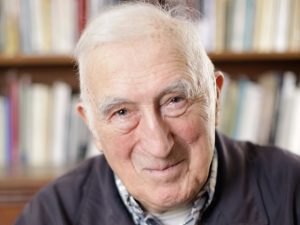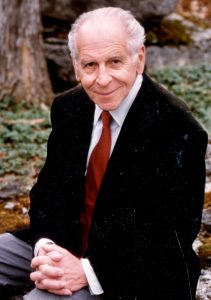I first became acquainted with Daniel Mackler’s work as a blogger on widltruth.net, and as a vlogger on YouTube. His YouTube channel is a middling channel with about 44,000 subscribers. He has written at least two books, which I have not read as of yet. He is a former psychotherapist and has in these latter days resorted to creating “content” (I hate that word, but it encompasses his many multimedia efforts) which go on about his views of the world, his views on psychotherapy, and his views on life, family, and human nature.
By and large, his vlogs and blog articles feel compelling, and hold my attention. But while his youtube vlogs, are usually clear and topic-focused, he generates relatively low views compared with other vloggers in a similar field such as Kati Morton and Dr. Todd Grande. I still find Mackler compelling, and to anyone who understands the daunting task he is giving himself in his multimedia efforts, he has no lower a status compared with these people.
He says he quit psychotherapy because he became disgruntled with the norms of the profession, and the way other patients are treated. His chief criticism was that therapists were too quick to drug people rather than get to the bottom of their traumas. As a psychotherapist, he asserts that all psychiatric disorders are rooted in suppressed trauma. The “cure” for this is, if I understand it correctly, is to get the patient to remember those past hurts, go through a grieving process, and then find a new sense of self by which growth can then feel more authentic.
This can be a long, exhausting, arduous process for both the therapist and the client. Most therapists, by Mackler’s reckoning, don’t want to go to the trouble of getting to the bottom of a person’s traumas, and would rather take part in continuing the supression and settling for an appearance of mental health, rather than the real thing. Such psychotherapists might refer them to a psychiatrist, where drugs and possible hospitalization are possible.
Mackler would oppose this, since he would feel that most administering of drugs and hospitalizations are an attempt to control the patient rather than offer actual help. The drugs and incarcerations appear to be done more for the therapist’s benefit than the patient’s. But Mackler feels that successful analyses are stymied by the failure of the therapist to analyze and understand their own trauma. By his reckoning, a greater understanding of one’s own trauma makes for a better therapist. The reliance of commision to a psych ward and drug therapy is inversely proportional to a psychotherapist’s understanding of their own hangups.
Mackler takes this further. He says that with a sufficiently self-actualized psychotherapist, one can cure a client of schizophrenia, without the aid of drugs. On that scale, I begin to think that Mackler quit because he feared he was insufficiently self-actualized for such tasks. Few of us would be, including few therapists. Humanity is, as he says in his videos, filled with people with unresolved trauma. Most of these traumas happen in early infancy and early childhood. So it would be quite difficult to find the kind of therapist that he would prefer to populate the profession.
Even more so, because one would have to ask, what is it that motivates someone to become a therapist in the first place? The field is normally populated with therapists with unresolved traumas of their own. And indeed, who better to understand the wounded than those who recognize their own wounds? I feel that Mackler places too high a standard on requiring therapists to dive down their own trauma rabbit hole to resolve all of them, or else conclude that their therapy is of no use.
In a perfect world, therapists would resolve all of their traumas, and bravely chart a course for patients to resolve their own, even for psychopaths and schizophrenics. But this is not a perfect world, and none of us are perfect. There is no “royal road” to self-actualization. We will always have imperfect helpers, imperfect institutions, imperfect professional norms, imperfect laws and regulations. One also needs reminding that it is an imperfect world that produces trauma in the first place. In a perfect world, there would be no psychological trauma and thus there would not be a need to train and employ practitioners. Mental hospitals would vanish. Drug companies would have to abandon psychoactive drugs as sales would have dried up. Daniel Mackler would be without a profession to abandon and criticize.
I feel that Mackler’s disillusionment of the mental health professions appear to be more of a lost romanticism about its practitioners. Yes indeed, drugs and incarceration are probably the norm, and so much so that Mackler is probably looked at as weird for thinking it’s weird. Mackler was in the profession for 10 years and had a lot to lose by quitting his profession. It likely signals that what he saw from the inside turned him off, but at the same time he saw himself moving in the same direction and wanted out. I can understand not wanting to add himself to a profession that dehumanizes its patients rather than humanizes them.
Visits: 74









 There has been, in recent elections, a new word that adds to the rhetoric of the role of the media in telling us what to think and helping to shape the outcomes of elections, whether wittingly or unwittingly. “Electability” is a subjective term, taken, I suppose, to mean that the platform and views held by the candidate have what the media deems to be a dose of reality and pragmatism. So, no dreamers, no idealists, definitely no socialists, but no fascists either (although Trump comes close to the latter).
There has been, in recent elections, a new word that adds to the rhetoric of the role of the media in telling us what to think and helping to shape the outcomes of elections, whether wittingly or unwittingly. “Electability” is a subjective term, taken, I suppose, to mean that the platform and views held by the candidate have what the media deems to be a dose of reality and pragmatism. So, no dreamers, no idealists, definitely no socialists, but no fascists either (although Trump comes close to the latter).
